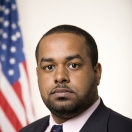
Last December, after a disappointing vote on the DREAM Act, President Obama stated, “I am persistent. If I believe in something strongly, I stay on it. And I believe strongly in this.” A year later, his commitment to the DREAM Act still stands. For this reason, our Administration continues to work with faith and community leaders, students, and advocacy groups to spread awareness on the importance of the DREAM Act and continue the conversation on fixing our broken immigration system.
One of the many groups working to advance immigration reform has been the Interfaith Immigration Coalition. Through an initiative titled the DREAM Sabbath, interfaith groups held events all over the country, highlighting stories of DREAM students and facilitating conversations between communities on the importance of the DREAM Act.
In their DREAM Sabbath Scrapbook, a report highlighting all the DREAM Sabbath events, media clips, and pictures, the initiative is described as, “a time when faith and action came together…”
The DREAM Act would allow young people who were brought to the U.S. through no fault of their own and grew up as Americans an opportunity to earn a legal status if they meet numerous requirements, including attending college or serving in the military. As the non-partisan Congressional Budget Office reported, the DREAM Act would cut the deficit by $1.4 billion over the next 10 years, and in these economic times, this is more meaningful than ever before.
Over 500 services were held by a variety of organizations and denominations in cities from coast to coast and the conversations that occurred helped “build stronger relationships with immigrant communities” and congregations. As the report so eloquently states,
“The power of DREAM Sabbath was not just limited to the services that happened during the fall of 2011 though. The power of DREAM Sabbath is still developing as the relationships between congregations and DREAM Act students are deepened, the thousands of congregants who are educated and will take action show their support, and the teams of faith communities working together to ensure that their members of congress stand as champions of immigrants’ rights to ensure that the DREAM Act is passed.”
As President Obama has said, it’s going to take talking to the American people and relating the stories of DREAM students, their struggles, their successes, and the economic benefits they bring to our country, to get the DREAM Act and larger comprehensive immigration reform through Congress. Through initiatives like the DREAM Sabbath, we can continue building community relationships and working together in a cohesive effort to make the DREAM Act a reality.


